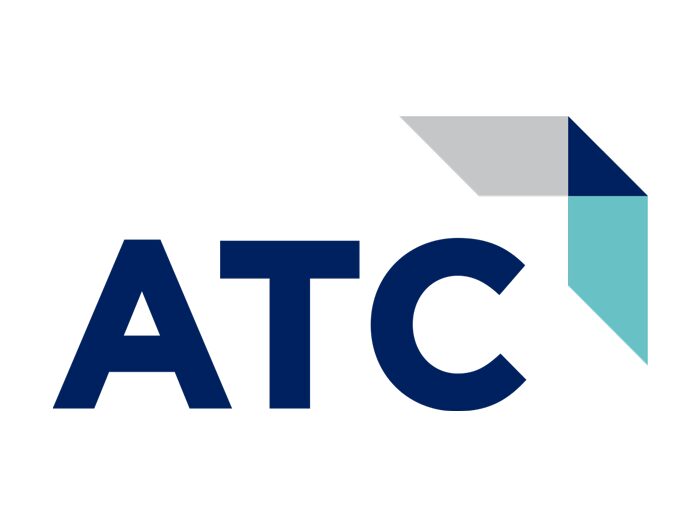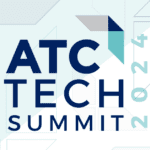
Hospitality Technology Trends in 2024
If you’re a hotelier, you may currently find yourself searching the internet for things like, “hotel technology trends 2024” or “new technology in hospitality.”
Every year, industries see new trends, and the hospitality industry is no exception. Currently, a number of hospitality technology trends are making a great impact on accommodation businesses worldwide.
From streamlining hotel operations to improving the guest experience, technology is becoming more and more pivotal. If hotels want to stay profitable in such a competitive and rapidly evolving industry, it is imperative to stay aware of the latest in technology.
Here are nine hotel technology trends to watch out for in 2024 that will help you stand out from the competition, enhance operations, and improve the guest experience.
Improving the Guest Experience
As hospitality professionals, the guest experience is easily one of your top priorities. Because of that, it’s no surprise that there are many technology trends in the hospitality industry that focus on the guest experience through and through.
1. Smart Hotel Rooms
Smart hotel rooms allow guests to easily personalize their rooms to fit their needs. The technology in hotel rooms enables guests to adjust the room temperature and lighting, and guests can even stream their favorite shows through a remote or smartphone.
Rooms can also be programmed to automatically reduce power during certain hours of the day. This type of tech not only makes it easy for hoteliers to keep energy production costs low, but they also have the ability to completely shut everything off in rooms where guests are not present. How’s that for convenience and affordability?
In a world where people are increasingly conscious of the environment, smart rooms also offer a promise of greater sustainability, and guests can feel comfortable knowing that they’re using energy sustainably. While these rooms are a massive benefit for the guest experience, they are also beneficial to hotels because they can reduce operating costs associated with energy usage.
2. Internet of Things (IoT)
IoT is definitely one of the top new technology trends in the hospitality industry. It allows various devices to be connected through the internet and controlled by one central source, such as a smartphone or tablet. Examples of IoT applications can include everything in a smart hotel room, from digital key cards to voice-controlled customer service.
IoT allows guests to easily control everything in their room and personalize it to their needs. It’s an operations win, too: mainly because IoT works as a smart hotel technology that uses data to identify and address issues before they become greater problems.
3. Big Data
Big data is one of the most practical hotel technology trends to date.
By definition, big data is a large collection of data that businesses can collect from consumer interactions. It is then used to analyze customer behavior and make more informed and strategic business decisions. You can use these insights to cater your services directly to your guests’ needs and interests and create a personalized experience they will never forget.
4. Mobile Check-In Service
Undeniably, mobile services only have room to improve in the future of hotel technology trends. After COVID-19, most interactions at the front desk were minimized as much as possible. A mobile check-in service became widely used in hotels to reduce contact between guests and employees. This also gives guests greater peace of mind.
Aside from this benefit, a mobile check-in service can speed up the arrival process and allow guests to get to their rooms quickly. One way to implement this is through digital registration cards that allow guests to fill out all necessary information from their phones prior to arriving at a hotel.
5. Contactless Payments
As in 2023, this year will see another booming technology trend in the hospitality industry: contactless payment. This tool uses wireless technology to complete transactions. According to a 2023 report by Yahoo Finance, the global contactless payment market size is projected to grow from 38 billion in 2022 to 162 billion by 2030, at a compound annual growth rate (CAGR) of 19 percent during the projected period.
Customers place their card, or even mobile device, within a few inches of the card reader and quickly complete transactions. Contactless payments also reduce the transaction time, allowing guests to quickly finish up their check-in and finally relax after travel.
Beyond the typical definition, contactless payments could also mean payments made online. Guests use mobile devices to transfer money to a specific account. UPI transactions and payments made by scanning a QR code are great examples.
This is where having a reliable and secure network infrastructure comes into play. Staying connected in today’s fast-paced world is more important than it’s ever been. You need a high-velocity network that supports performance and productivity to keep your team functioning optimally.
The right IT partner will be there to offer innovative technology solutions, keep services optimized, and provide strategic advice. Collectively, all this helps drive your business to reach its goals by making your technology a strategic differentiator.
6. Increased Internet Bandwidth
People travel with more devices than ever before, and they’re using them to do any number of things like stream videos, stalk social media (okay, maybe “scroll-through social media” is a better way to phrase it), play games, work remotely or attend video conferences during their stay.
It’s pretty common knowledge among hoteliers that a whopping 90 percent of travelers expect hotels to offer free Wi-Fi. To accommodate this behavior, hotels should get as much bandwidth as they can since higher-quality media requires more bandwidth to load. And the growing popularity of 5G technology opens numerous opportunities for the industry as well.
Increase Operational Efficiency and Revenue
7. Cybersecurity
Stories of cyberattacks on hotels and hotel groups are not uncommon, and even some of the largest groups have had security breaches.
Guests want to trust that their information is secure at all times. With the rise in remote working from hotels, it’s especially important that your network is secure enough for sensitive business information. It’s also worth investing in stronger security measures so your operations and brand reputation don’t suffer the consequences of an attack.
Some of the biggest cyber threats include:
- Ransomware attacks
- Phishing attacks
- Distributed denial-of-service (DDoS) attacks
- Human error (within the organization).
A sound security strategy provides unified and reliable protection of a hotel’s assets from potential threats. Today, every business is vulnerable to attack, not just major global brands. The consequences of being unprepared in the instance of a cyber attack can be catastrophic. For this reason, hotels need to invest wisely and adequately in cybersecurity.
This includes:
- Employee-awareness training
- Protection of internal IT systems
- Securing customer data
- Backup and recovery services.
8. Cloud Computing
Cloud computing in the hotel industry is a large part of why the guest experience has vastly improved. A cloud ecosystem provides several advantages over traditional computing by helping organizations:
- Avoid costly and painful installations
- Spend minimal amounts on upfront investments (no hardware costs)
- Eliminate depreciation costs of on-prem servers. (Cloud software gets better with age since updates can be made at any time)
- Reduce switching costs with easy-to-use software
- Access information anytime, from anywhere
- Prevent disruption or data loss.
From omnichannel support to AI, intelligent cloud contact centers allow hotel brands to use cloud-based services to collect useful data from the first moment a customer interacts with the business. This data can then be used to tailor the guest experience and make data-driven decisions about property management.
By analyzing data collected from smart devices, hotel properties can:
- Identify which features guests use most frequently
- Make real-time adjustments to amenities
- Anticipate guest needs (additional towels and toiletries, touchless appliances or disposal units, keyless entry, etc)
- And more.
Various applications like Microsoft Teams, Helpdesk, Power BI, PowerApps and more play a major part in the evolution of the hospitality industry digitally. Your managed service provider or IT consultant can help you find the right solutions to advance your hotel technology and improve the overall guest experience.
BONUS TREND FOR HOTEL BRANDS
9. Contact Center as a Service (CCaaS)
In your online search for “hospitality technology trends 2024,” don’t be surprised when you see that integrated hotel technology is mentioned several times. For hotel brands, this highly sought-after tech is all about connecting data, applications, APIs, and devices to the existing technology stack.
Streamlining and unifying communications is a struggle for businesses of all sizes, especially in today’s “work from anywhere” environment where guests are more likely than ever to interact with your organization via non-traditional channels such as chat and SMS. If you’re concerned about the customer experience with your contact center, a cloud-based contact center provides omnichannel communications and empowers happy agents, which leads to positive guest interactions. Cloud-based unified communications can also easily integrate with other systems and provide real-time data and information on:
- Room inventory
- Rate listings
- Guest services and support
- Orders and tracking
- And more.
Why Research “Hospitality Technology Trends 2024” as a Hotelier?
If hotels are to serve guests better (while saving money in the long run), understanding the latest technology trends in the hospitality industry is critical.
And don’t worry, we’re not suggesting you tackle all of them at once. At ATC, we can help you pick the most relevant technologies suitable to your needs, and gradually help you digitally transform your properties. Give us a call and start updating your hotel’s technology stack today, for a better tomorrow.










